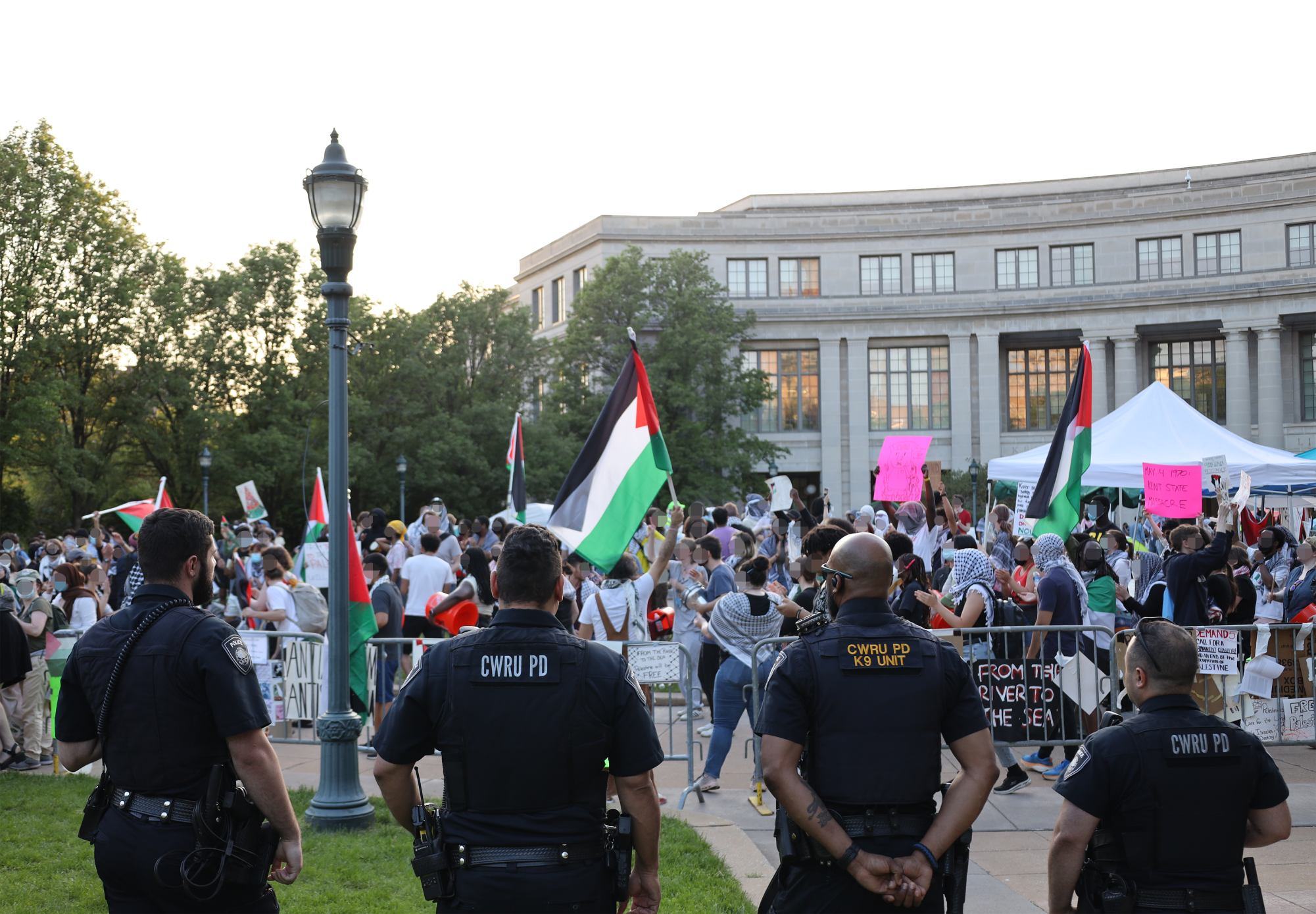For the past several months, the Case Western Reserve University student body has received multiple emails from President Eric Kaler regarding student protests about the Israel-Hamas war. His most recent email in collaboration with Provost and Executive Vice President Joy K. Ward mentioned how we as Americans are collectively “facing a contentious election campaign season. And as global citizens, we’re seeing tragedies around the world that bring devastating loss.” During these difficult times, he emphasized the fact that the university is meant to function as a place that challenges the status quo while encouraging civic engagement.
One major question must be answered, though: How much deviant civic expression is accepted on campus as a result of not only this new policy but the many other emails that came before from Kaler? One could argue that the responsibility of the university to challenge the status quo seems more performative than genuine. For example, in his latest email Kaler said that “a proposed demonstration … requires written pre-approval from the Freedom of Expression Policy Committee.” This form must be submitted seven days before the demonstration is requested to happen. The irony in this form of civic expression, however, is that a demonstration that directly opposes the stance held by the administration must first be approved by said administration. A demonstration in which students aim to challenge the values of those in authority now can be shut down before it even sees the light of day. This new policy not only inherently restricts freedom of expression on campus but also generates tension between the student body and those that are supposed to have the students’ best interests in mind.
Regarding last semester’s protest, of course the protesters should have expected that they would face consequences for their actions. But because the demonstration as a form of civic duty was already something that the university was so staunchly against, there was no possibility of challenging the “status quo” that the university claims to desire to disrupt. A protest directly operated within the perimeters of the authority opposition is, in itself, performative compliance rather than a pursuit that can ultimately enact change. If there is no inconvenience to a force that essentially declares itself unwilling to compromise, then there is no basis to eventually create genuine discussion or change. Essentially, a demonstration governed by those with unwavering opposing views is just a waste of time.
The email also stated, “Only university faculty, staff, students, postdocs and recognized university groups in good standing may make a request [to hold a demonstration].” This condition automatically bars certain individuals and groups from acting on what they consider their civic duty. Furthermore, this condition is controlled directly by what those in authority of the school deem to affect “good standing” status. According to this policy, CWRU’s chapter of Students for Justice in Palestine would be unable to make a request to hold a demonstration because of their “Interim Loss of Recognition” decided by those in charge.
Another very restrictive element of the new policy is that demonstrations are limited to a mere two hours and can only be held between 8 a.m. and 8 p.m. Furthermore, he explicitly highlighted the fact that projections of light “onto any building or structure” and tents are not allowed. This is a clear response to the encampment that started right before the 2024 spring semester ended where messages were displayed on the Kelvin Smith Library with projectors and tents were erected in the Kelvin Smith Oval. Students stayed within the space overnight for multiple days.
Kaler’s email comes at a time when many universities around the nation are coming up with new procedures and plans for how to usher in the new school year without major complications from protests. For this upcoming semester, Columbia University has decided to restrict campus access to people with school IDs and their specified guests. They are also deliberating as to whether security officers should have the power to make arrests. Many schools are deciding where protests can happen, when they can happen and whether signs are allowed. Additionally, universities are contending with pressure from Congress and the Department of Education with lawsuits alleging that protests have created hostile environments on campus toward Jewish and pro-Israel students.
The problem with the introduction of all these rules, though, is that they don’t foster an environment where civil discussion and compromise are possible. In an email sent on May 6, 2024, Kaler explicitly stated that CWRU will not be divesting from Israel—a final statement with no room for compromise or discussion between the administration and student body. If this is the case, then a demonstration under the new restrictive constraints of the administration is not productive in the first place.
It is unreasonable to place such severe restrictions on a protest when the administration has already made its stance clear on the fact that the students are unsupported. This hard-line stance of the university will only result in further alienation between the administration and students. A university should be open to discussion and compromise beyond a level that is performative. Furthermore, it should understand that if it is not willing to compromise, students have the right to exercise their freedom of speech in a protected and safe environment, including the right to speak out against the school’s policies. After all, Kaler himself encourages such civic discussion in his email. While a conversation is certainly the best way to come to a conclusion when two parties work together, there seems to be an inability to come to an equal discussion between an uncompromising administration and a determined opposition.


